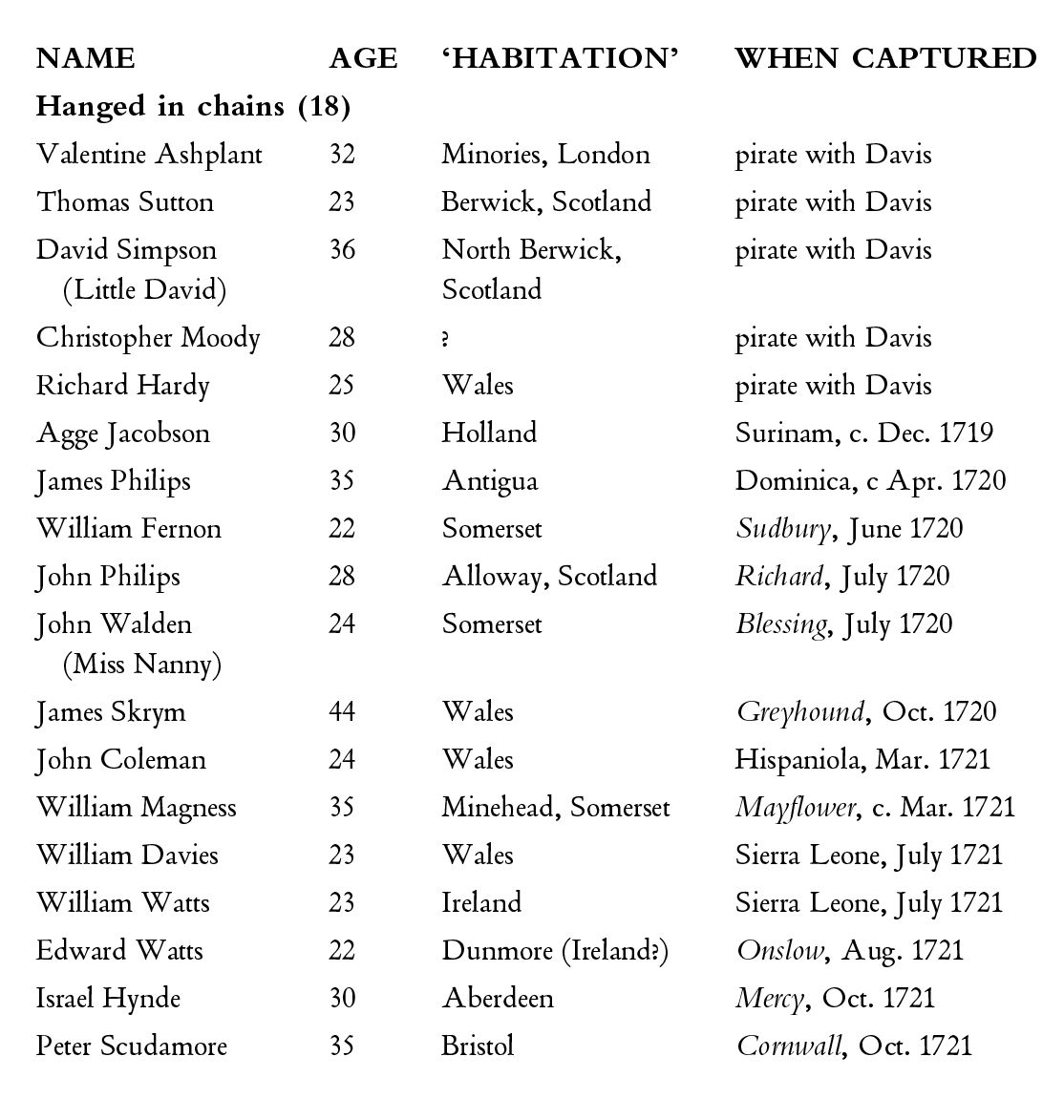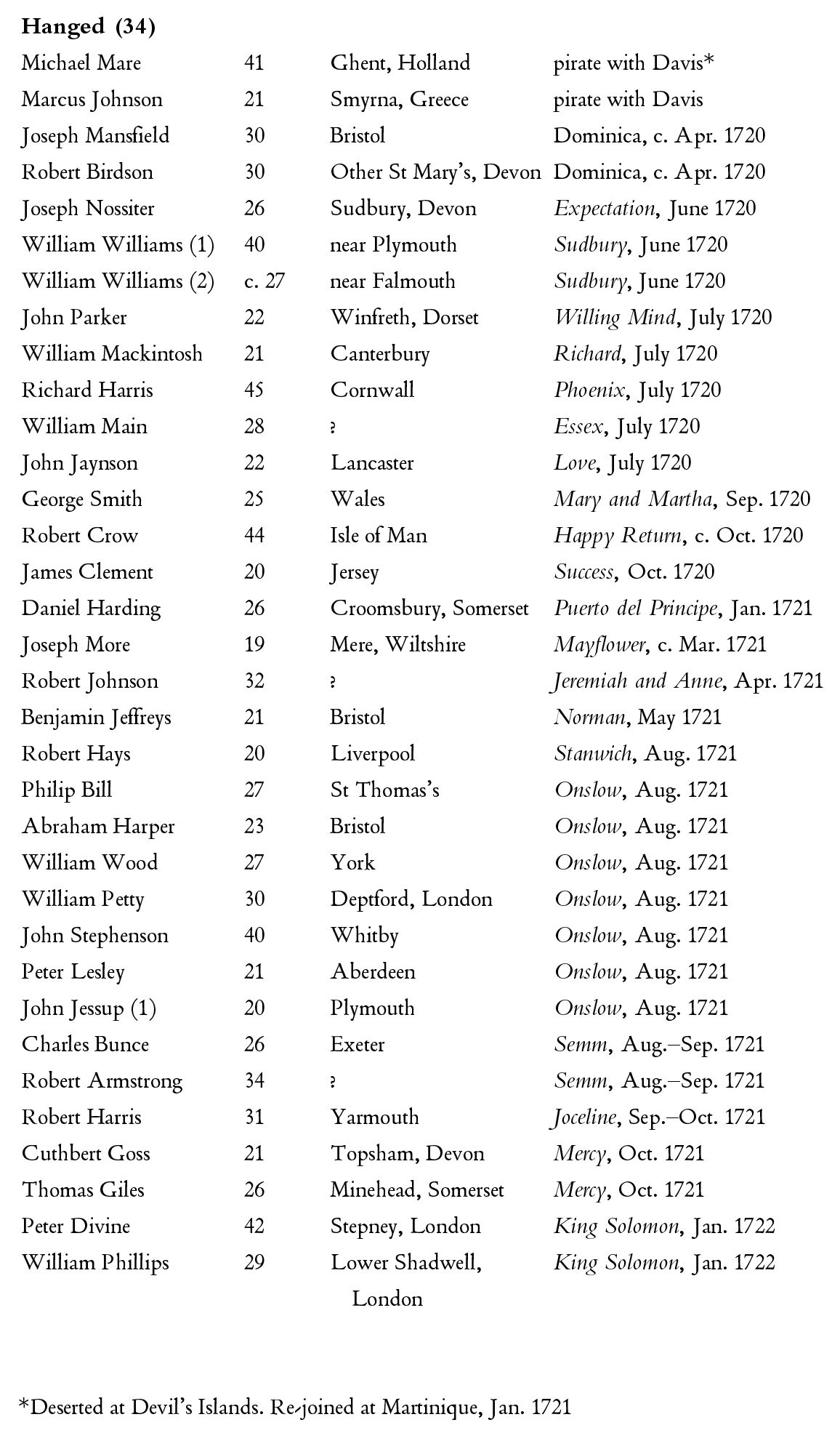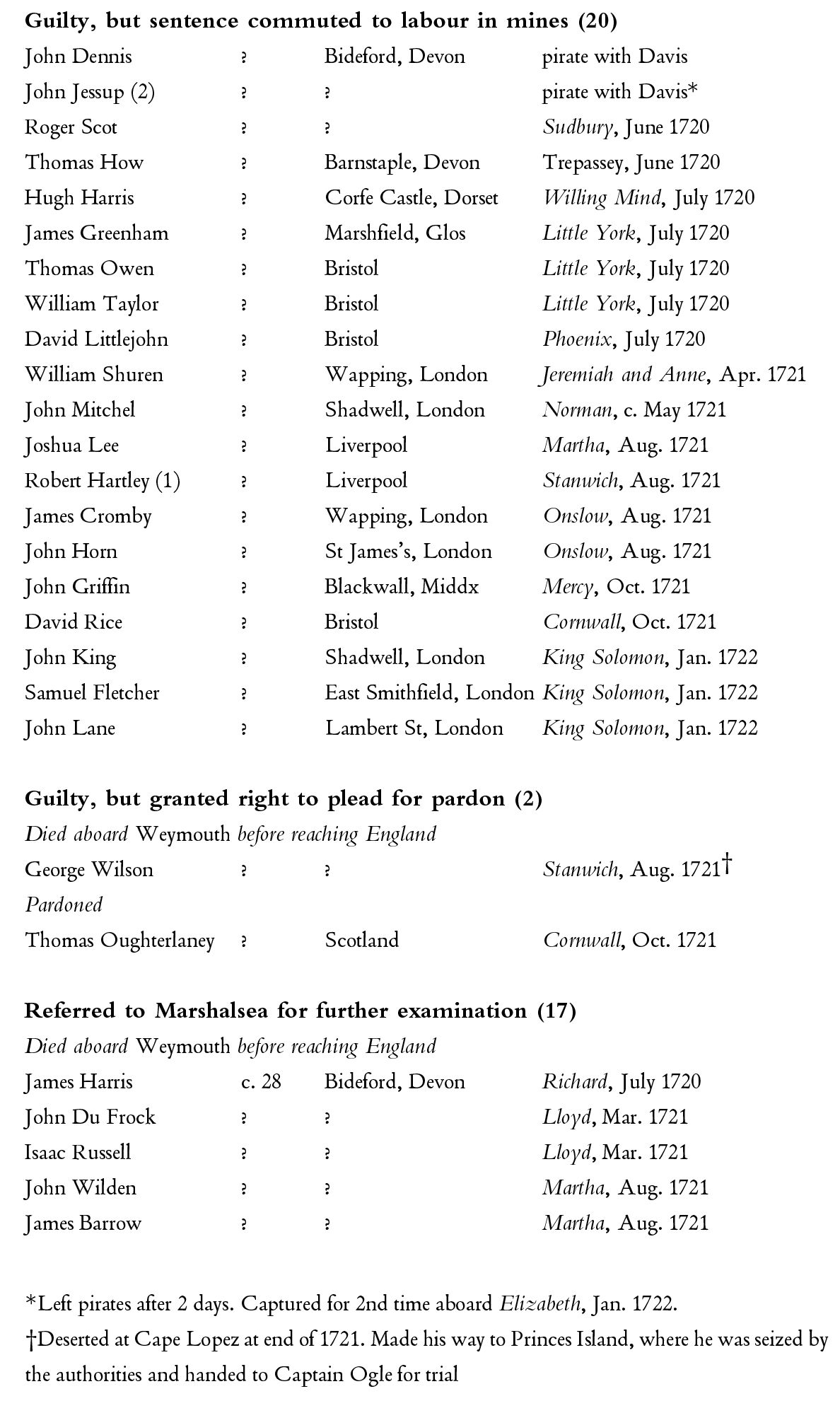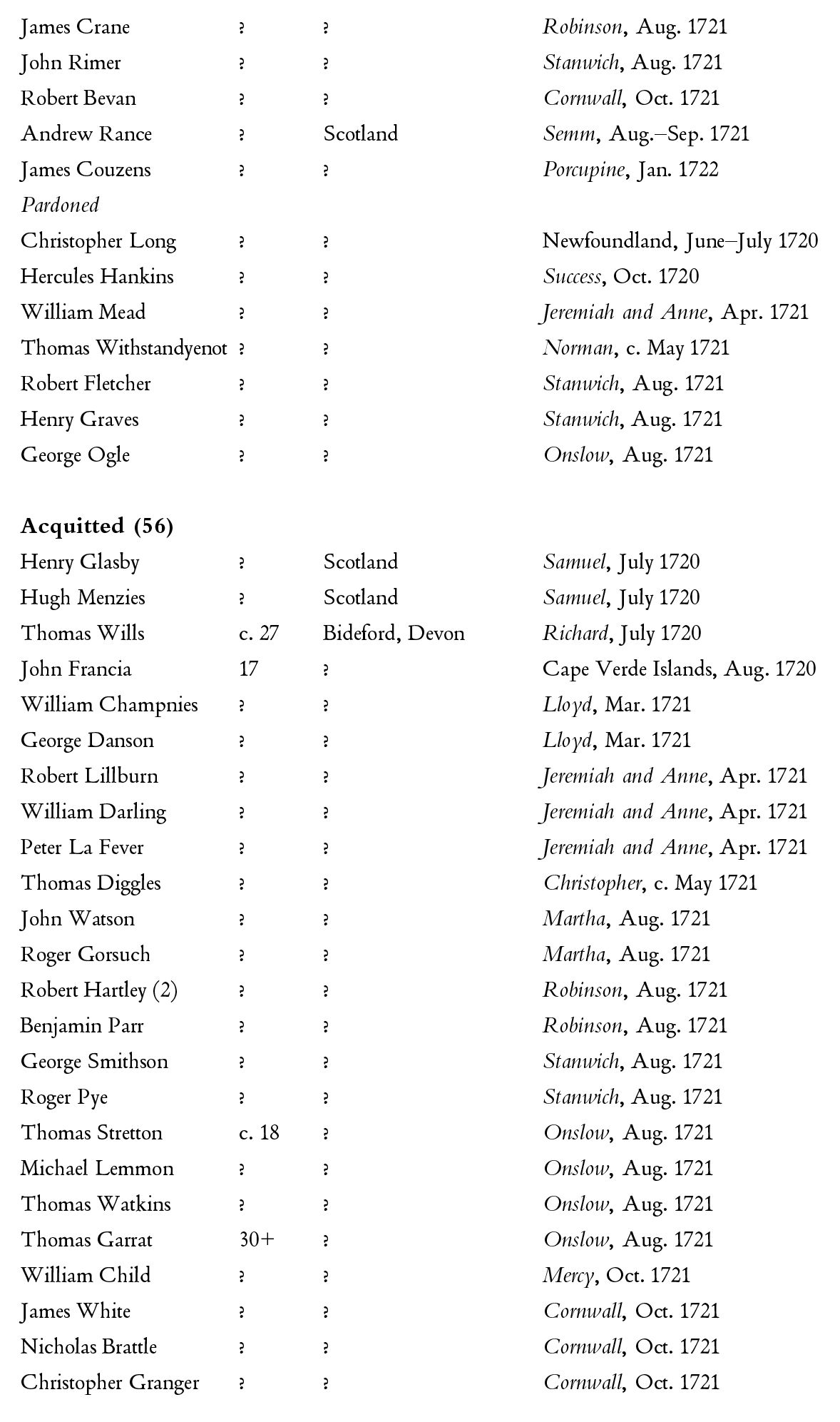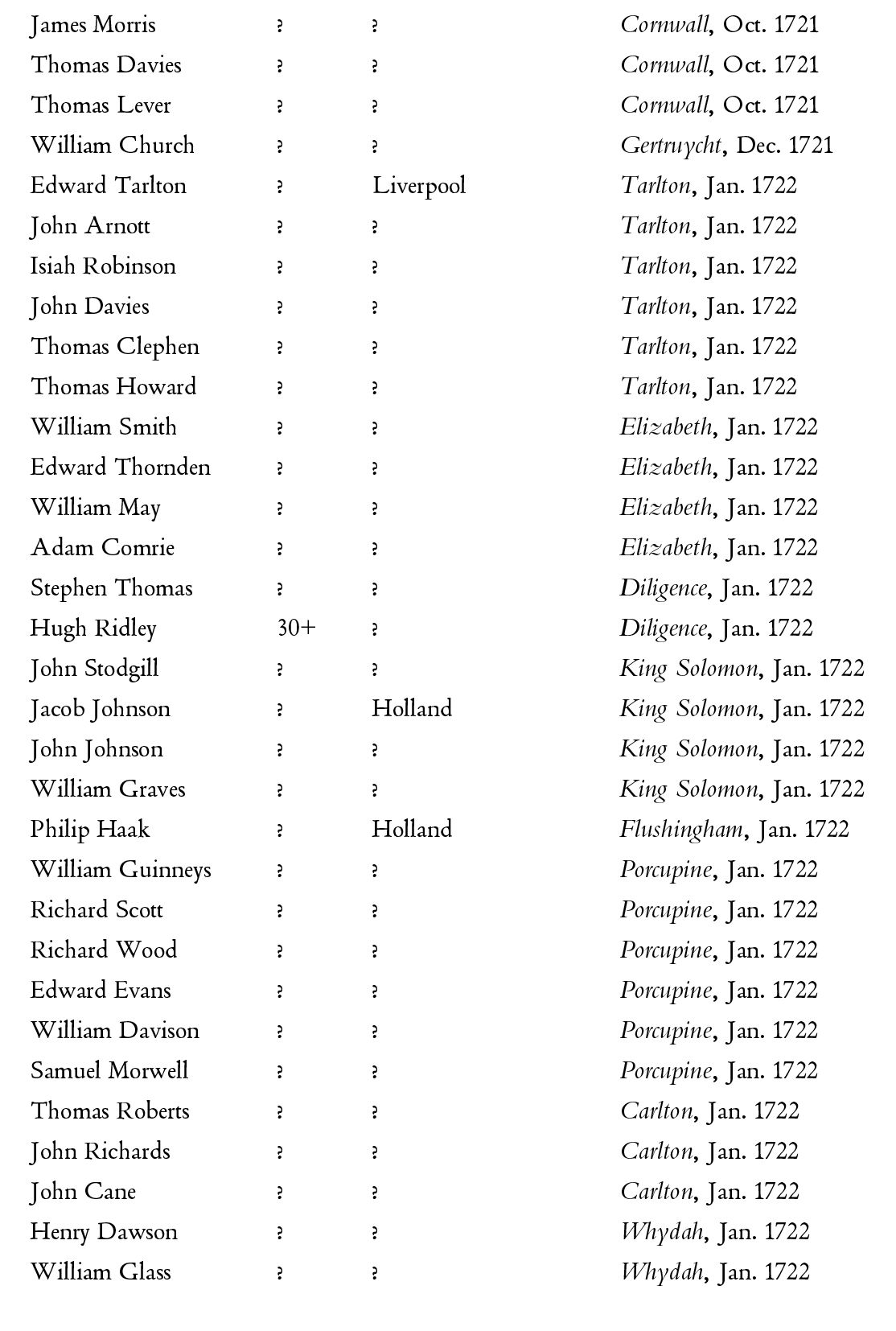APPENDIX 1: ROBERTS’ SHIPS, CREW AND PRIZES
SHIPS
Bartholomew Roberts initially commanded just one ship, the Royal Rover. But from June 1720 onwards he always operated with two ships. In all he commanded nine vessels - the Royal Rover, three Royal Fortunes, two Good Fortunes, two Rangers and one vessel whose name was not recorded.
| Main Vessel | Second Vessel | |
|---|---|---|
| July 1719 | Royal Rover | — |
| (formerly Marquis del Campo, inherited from Davis; 32 guns) | ||
| Nov. 1719 | Good Fortune (1) | |
| (formerly Princess, taken at Cayenne, French Guiana; 6-12 guns) | ||
| Dec. 1719 | Royal Rover deserts | |
| June 1720 | Un-named vessel | |
| (Bristol galley, taken at Trepassey, Newfoundland; 18 guns) | ||
| July 1720 | Royal Fortune (1) | |
| (French fishing vessel, taken on Newfoundland Banks; 26-28 guns) | ||
| Oct. 1720 | Royal Fortune (2) | |
| (French ship, taken in West Indies; 34-42 guns) | ||
| Jan. 1721 | Good Fortune (2) | |
| (brigantine from Rhode Island, taken at St Lucia, West Indies; 18 guns) | ||
| April 1721 | Good Fortune deserts | |
| May 1721 | Ranger (1) | |
| (formerly French cruiser, Count de Toulouse, taken off River Senegal; 24-36 guns) | ||
| Aug. 1721 | Royal Fortune (3) | |
| (formerly Onslow, taken off River Sestos, West Africa; 40 guns) | ||
| Jan. 1722 | Ranger (2) | |
| (formerly French slaver, St Agnes, taken at Whydah, West Africa; 32 guns) |

PRIZES
The following are documented captures by Roberts and his men. Excluding the 150 to 250 fishing shallops taken at Newfoundland, and the six vessels taken during the brief period Thomas Anstis was captain, they come to between 136 and 141. Of these 78-82 were either from Britain or British colonies, 36-37 were from France or French colonies, 9 were Portuguese, 7 were Dutch, 1 was an indigenous fishing vessel, and 5 were of unknown nationality. Captain Johnson’s figure of 400 for the total number of prizes taken by Roberts presumably includes the shallops taken at Newfoundland.
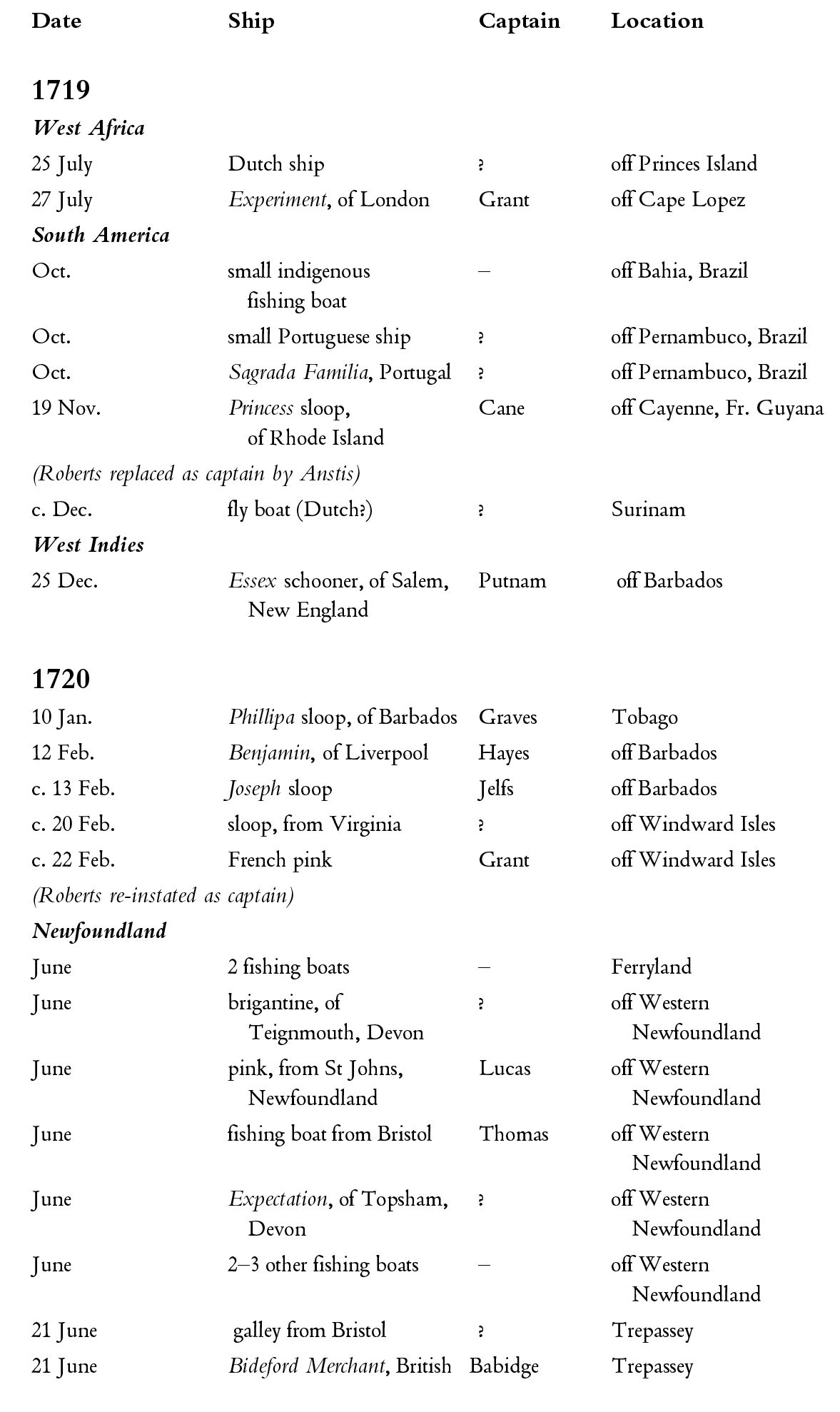
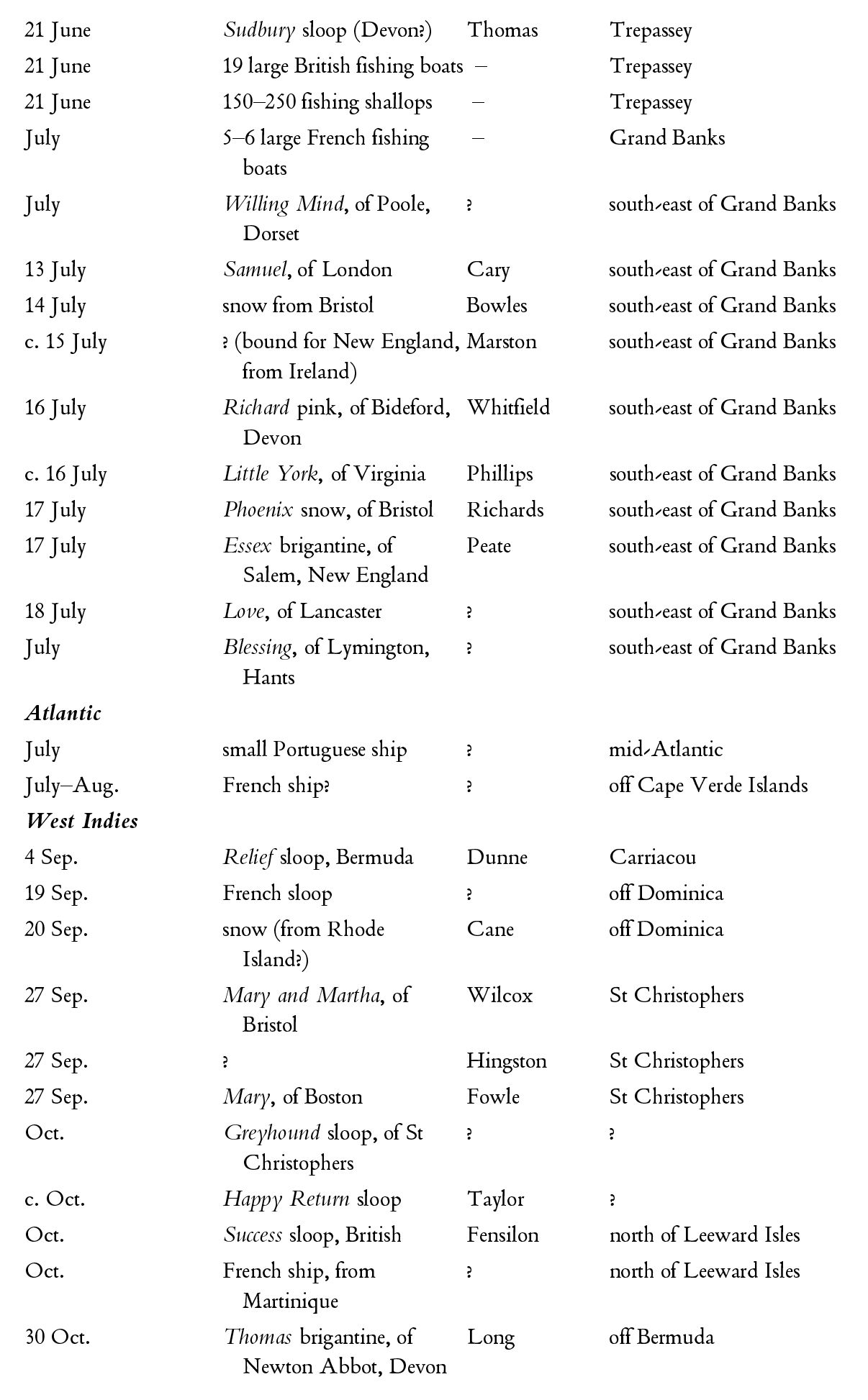

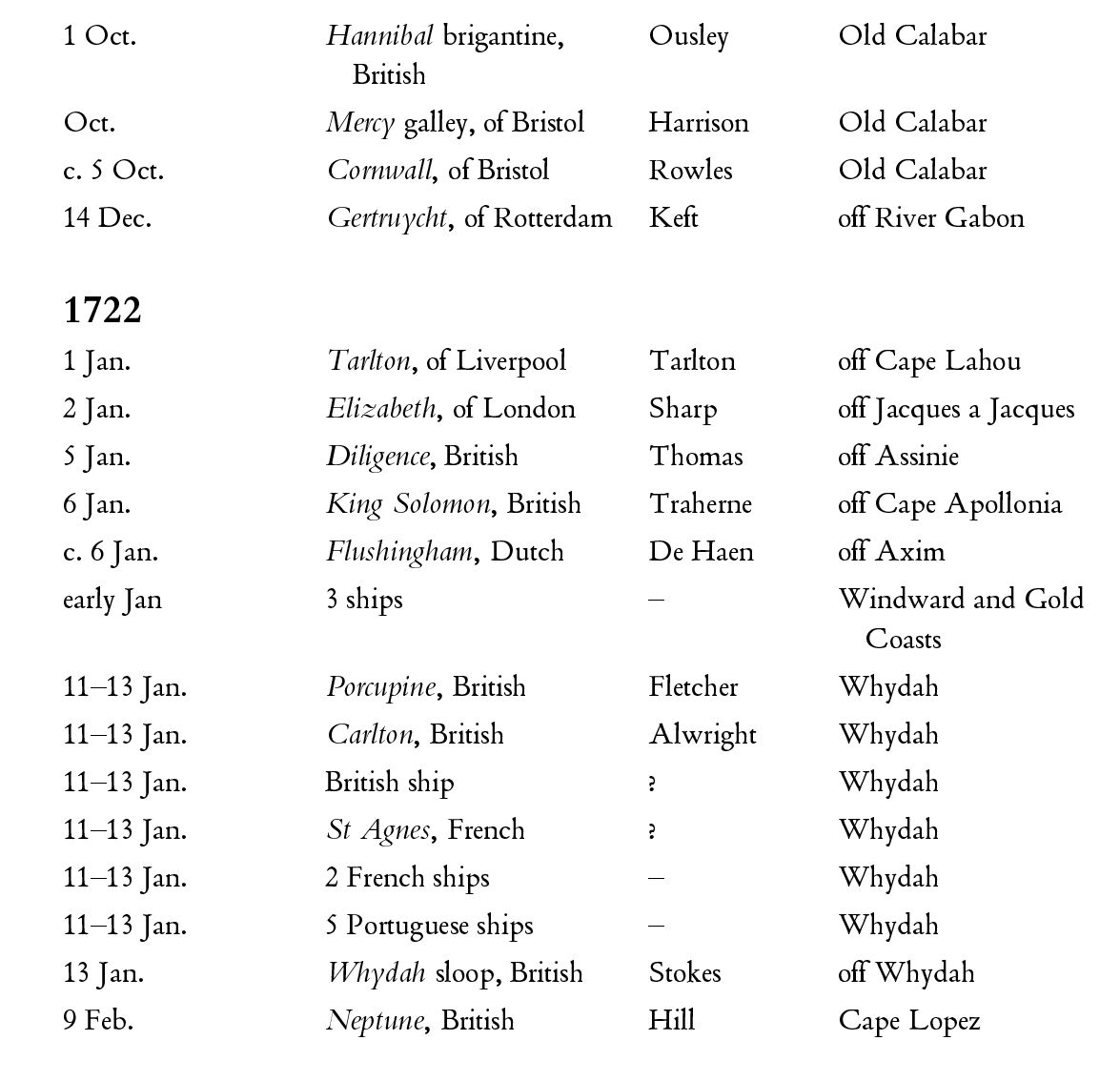
CREW
A total of 147 men stood trial at Cape Coast Castle. We have the ages of 56. They ranged from 17 to 45 and the average was 28. Of the 73 men for whom we have a clearly identifiable place of origin, 30 came from the West Country, 12 from London, 8 from elsewhere in England, 9 from Scotland, 5 from Wales, 4 from Holland, 1 from Greece, 1 from Antigua, 1 from Jersey, 1 from the Isle of Man, and - despite the ban imposed in the wake of Kennedy’s desertion - 1 from Ireland.
